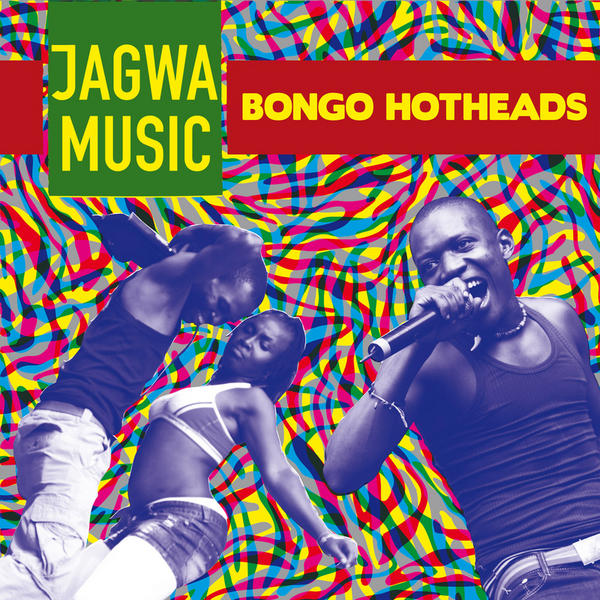Reviews June 14, 2012
Bongo Hotheads
You haven’t heard anything like Jagwa Music before. You may have heard things that could potentially prime you for Jagwa Music like Janka Nabay’s metronomic bubu blitz or Konono’s No. 1 intricately warped sonics. Still, nothing like this has ever been widely released. Hailing from Daar es Salaam in Tanzania, Jagwa Music (the name is derived from the French Jaguar fighter plane) play a style of music known as Mchiriku. Although rooted in the celebratory Ngoma wedding music of the Zaramo people, mchiriku has long since shed its ceremonial connections, becoming one of the most popular forms of music in the poorer sections of the capital city, providing an outlet for the kind of social and political commentary (along with streetwise boasting) not readily available from other sources.
Mchiriku first emerged as a popular music during a period that saw significant changes to Tanzanian musical culture. Due to structural changes stemming from the financial difficulties and resulting neo-liberal reforms of the 90’s, the Tanzanian government was forced to abandon its previously extensive support for musicians, resulting in the collapse of most of the larger bands that had long dominated the music scene. At the same time, an increasing flood of western music began to enter the country, indelibly shaping its youth culture. One reaction to these developments was the growth of an increasingly western-influenced music; the hip-hop influenced style known as Bongo-Flava is a near perfect example. Another reaction was the embrace of modern re-imaginations of Tanzania’s traditional musical culture. This latter approach was exemplified by the Mchiriku style.
Jagwa Music is comprised of a singer, four drummers, and two keyboard players using a pair of ancient Casios. Mchiriku is party music, made for dancing, and as a result it focuses on creating a flow of hypnotic repetition, downplaying melodic progression in favor of a constantly churning rhythmic sea. It’s a music that has the logic of expansion and contraction; sudden pockets of double-time appear and then vanish, folding back on themselves as they are traded between the drums and keyboards. Despite this intensity, the band conjures a vibe that is somehow both hectic and serene. Uninflected keyboard patterns float calmly above the drum’s shifting rhythmic web, and the band barrels forwards, unruffled and seemingly unhurried despite the speed at which it is traveling.
Sonically speaking, the music is uncluttered despite the number of musicians playing,
an effect attributable to the incredibly limited space occupied by the band’s instrumentation; the drums are either low bounce or tinny clatter, while the high-pitched whine wrenched from the Casios means that there is almost no mid-range to speak of. Only the singer, Jackie Kazimoto, is left to bridge the gap. Throughout the album, Kazimoto provides the music’s central focus, playing the role of ringmaster to the rhythmic melee that swirls around him. His voice is magnificent and seemingly capable of anything from fervent exhortation to sweet melody, easily switching between riding the group’s groove and spurring it to the charge. These moments make up the most thrilling on the album, as the beat accelerates, the keyboards kick into an even more distorted timbre, and the band just GOES, sprinting full-tilt towards some far-off finish line. If the internet reports about the band’s legendary live sets are true, and they actually do routinely consist of two or more hours of this kind of intensity, Jagwa Music is probably unimaginably good in-person. However, until they tour the states, we have to be satisfied with this uniquely excellent album.









